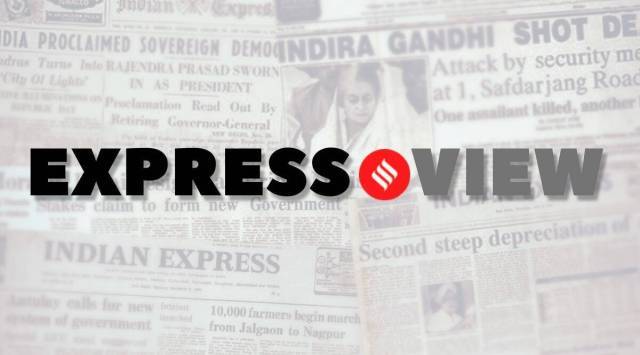
Manipur is back on the boil, with its multiple fault lines coming alive. The Centre has done well to step in and take over security of the state as the state government had failed to stem the violence raging in both the Imphal Valley and hill districts. Chief Minister Biren Singh, already beleaguered by dissension in the party, has appealed for peace but his administration has failed to rein in the mobs or negotiate a truce between the warring parties. The immediate step is to enforce peace, crack down on the violent mobs without fear or favour. That’s not easy given the deafening grind of so many axes around the ethnic, religious and geographic divides that have roiled the state for decades.
The latest violence seems to have been triggered by a tribal solidarity rally against the Meitei demand for Scheduled Tribe status. The Meiteis, mostly Hindus, are estimated to be over 60 per cent of the population and inhabit the Imphal Valley. The hill tribes —mostly Naga and Kuki — are predominantly Christian and are designated as ST. Relations between the Valley and the hills have always been fraught with the hill population accusing the Meiteis of political domination whereas the latter fear loss of assets such as land and cultural marginalisation. CM Biren Singh did well in his first term to address the grievances of Meiteis against Delhi — withdrawing the AFSPA from parts of the Imphal Valley, starting a healing process in a society that bore the scars of extremist violence and encounter killings. Singh also reached out to the hill population by holding government meetings outside Imphal.
However, a raw nerve was touched with the Kukis when the BJP government ordered demolitions of what it termed illegal constructions on public land.
Among the “encroachments” removed in the last few days were a few churches. Another point of contention between the Valley and the hills was the campaign for an NRC in the state, premised on the claim that illegal immigration was changing the demography of the state. The immigrants targeted in the campaign included people who share ethnic bonds with Kukis in Manipur escaping the junta action in neighbouring Myanmar. Unlike in Mizoram, where the Mizo National Front government has been sympathetic to displaced people from Myanmar, the Biren Singh government seems to be indifferent to the refugee influx.
Manipur, like most of northeastern India, is a patchwork of cultures, faiths and ethnicities, many with a history of mistrust. Political relations within the state and with New Delhi have to be managed and differences negotiated with tact. The BJP has been smart in forming the Northeast Democratic Alliance (NEDA) to pursue electoral success. But for all the party’s claims of containing extremist violence, these states, most of them now under NEDA governments, have had their flashpoints. Nation-building in the region continues to be a work in progress with communities in a restive state. New Delhi and Imphal have a challenge on their hands, they need to work together, and with all stakeholders.